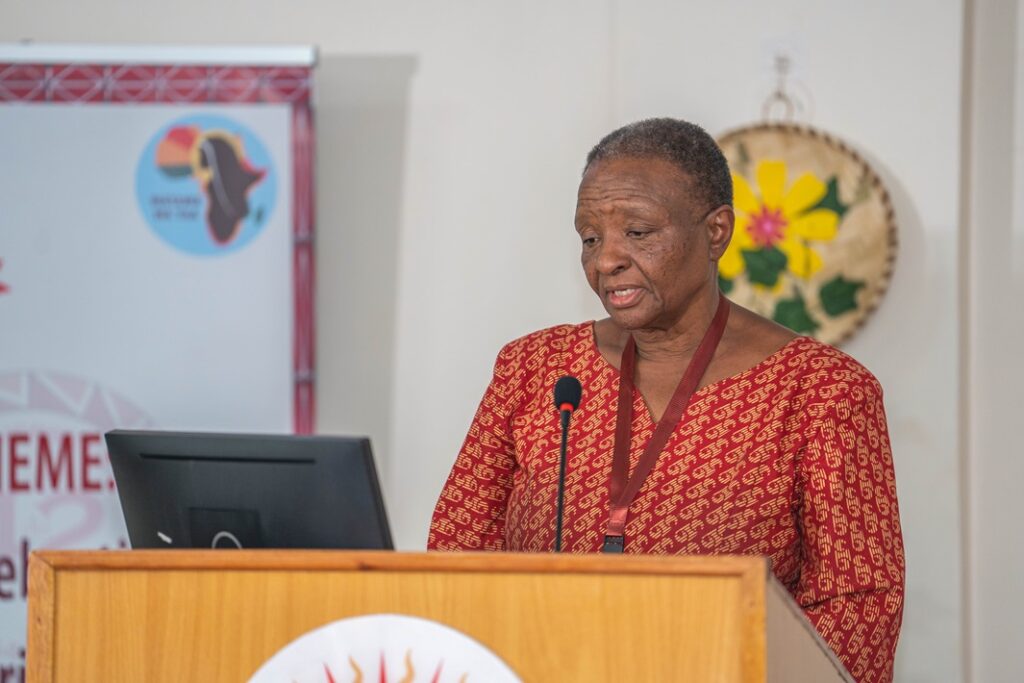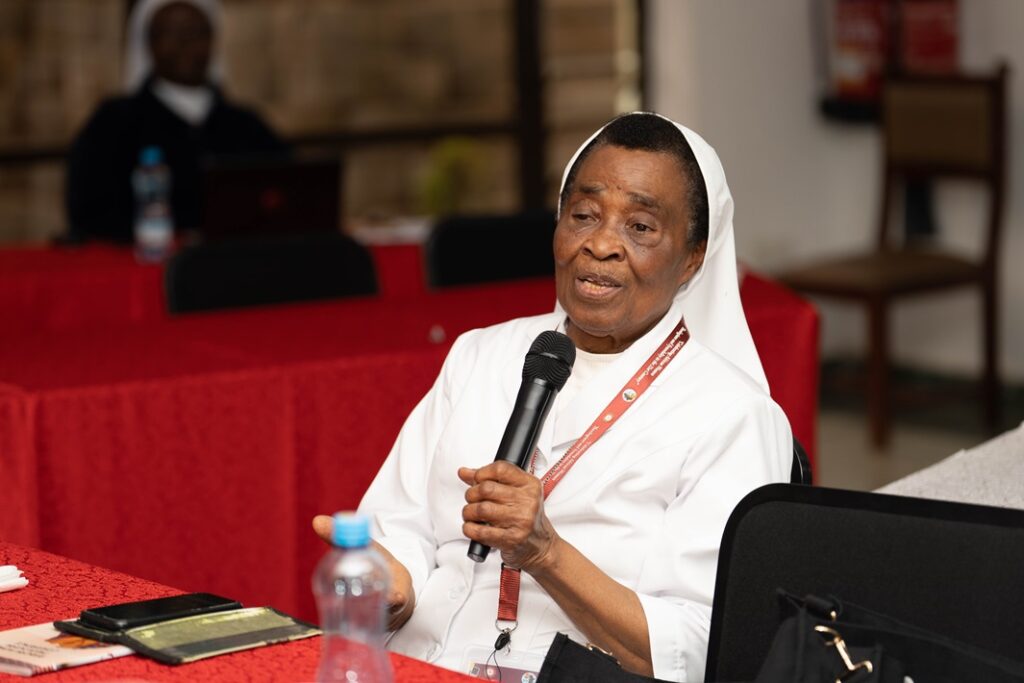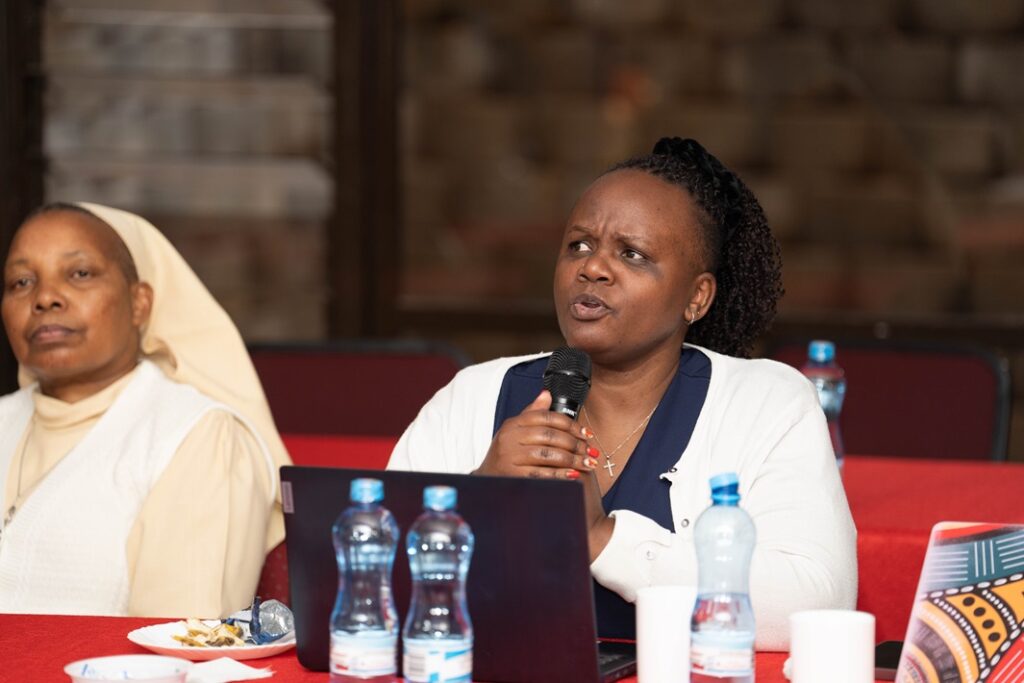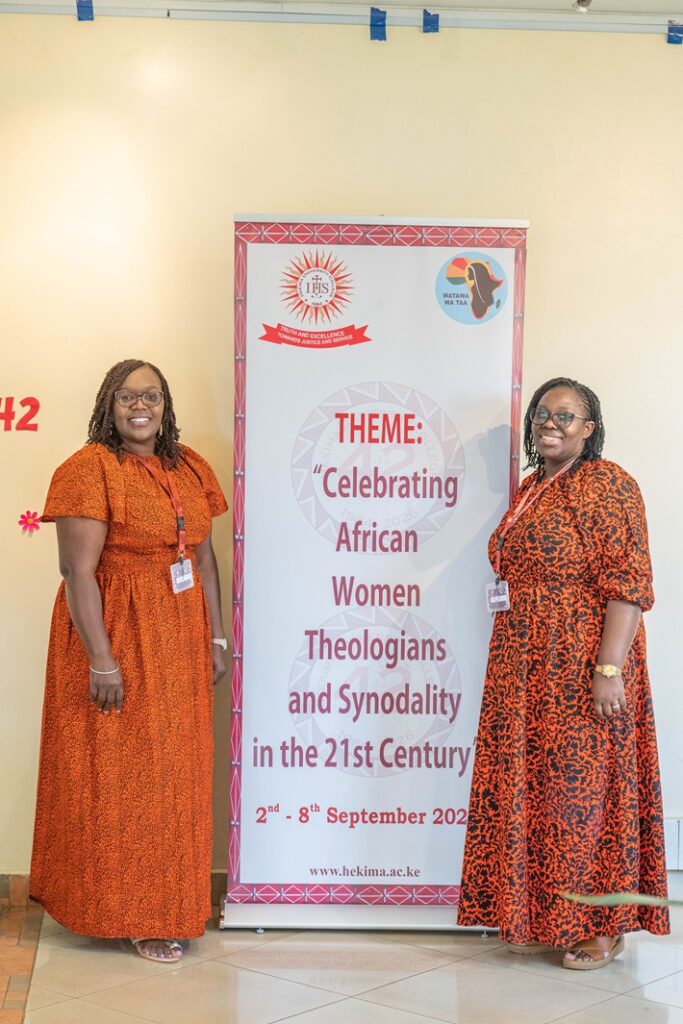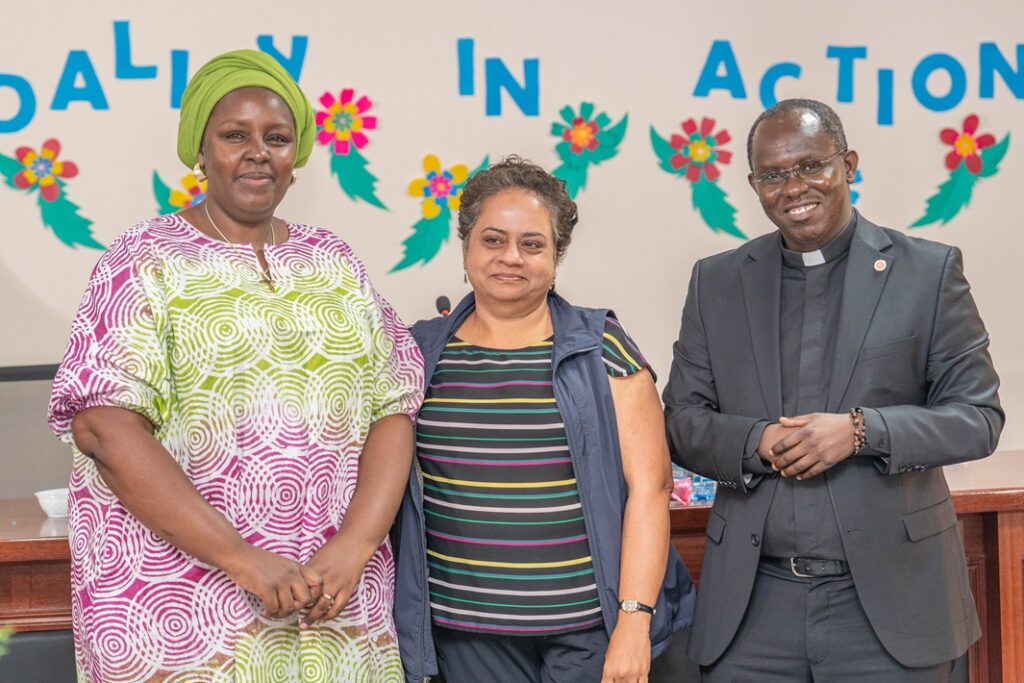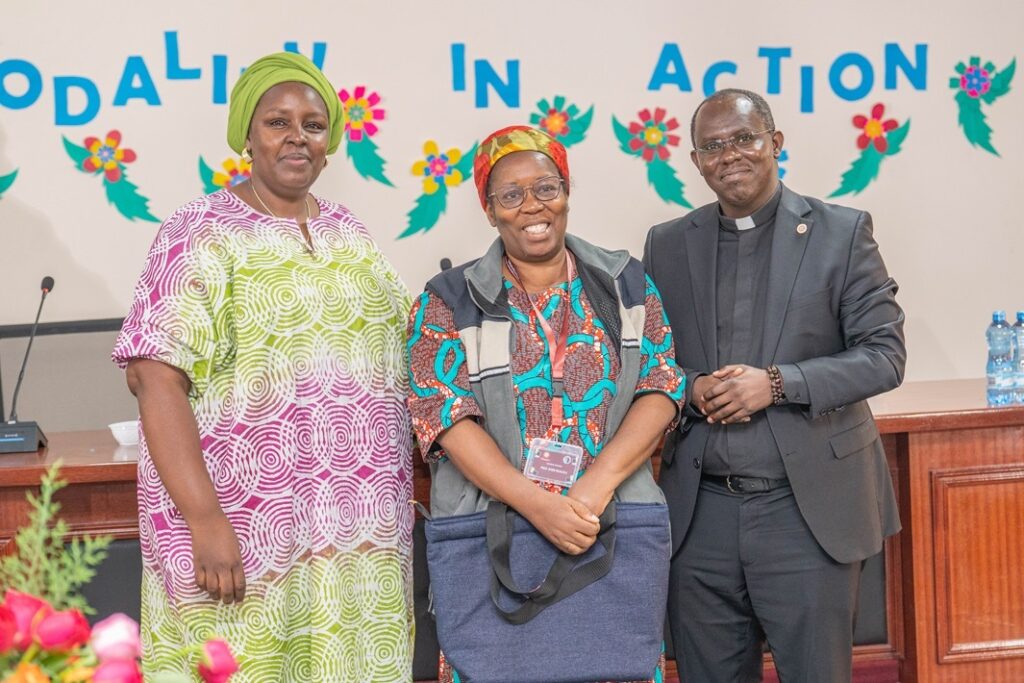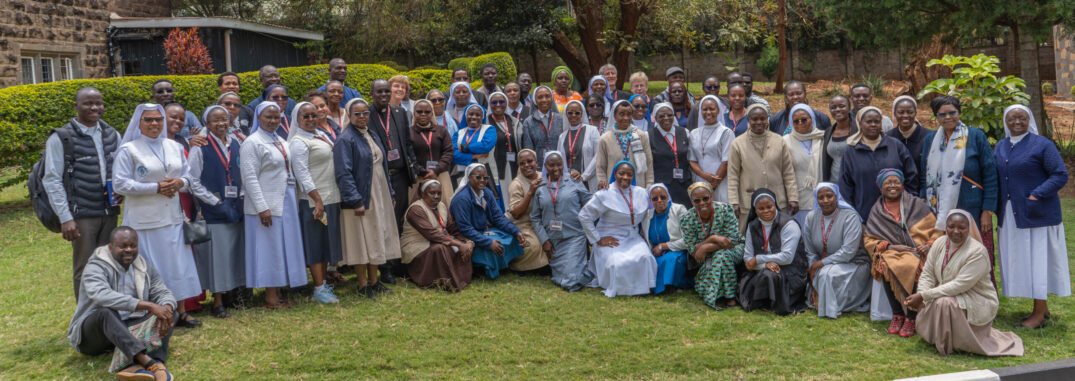By Paschal Norbert
NAIROBI, OCTOBER 7, 2025 (CISA) – September 2025 will be remembered as a month of profound reflection and awakening for women theologians in Kenya and across Africa. The Second African Women Theologians Conference, held from September 3 to 6, 2025, at Hekima University College’s Arrupe–Amani Campus in Nairobi, brought together the continent’s leading voices in theology, canon law, and pastoral leadership.
Building upon the momentum of the first conference in 2023, which celebrated forty years of Hekima University’s commitment to the formation of women theologians, this year’s gathering marked a powerful continuation, a deepening of the journey toward a synodal Church that listens, discerns, and acts.
With the theme “Synodality in Action: Emerging Ecclesiologies, Vitality of Women and Discerning Leadership for the 21st Century,” the conference unfolded as a spiritual and intellectual pilgrimage, an encounter between faith, scholarship, and lived experience.
It was a convergence of women whose scholarship and witness continue to reshape the ecclesial landscape: Prof. Philomena Mwaura of Kenya, Sr. Prof. Teresa Okure, SHCJ, of Nigeria, Sr. Prof. Josée Ngalula, SSA, of the Democratic Republic of Congo, and Prof. Myriam Wijlens of Germany, among others. Together with theologians from across continents, they embodied what could best be described as the global Catholic sisterhood in dialogue, a movement grounded in hope and the desire to build a Church where the fullness of baptismal equality finds concrete expression.

Under the visionary guidance of Rev. Marcel Uwineza, SJ, Principal of Hekima University College; Sr. Mumbi Kigutha, CPPS, President of Friends in Solidarity and Director of Watawa wa Taa; and Sr. Jacinta Auma Opondo, FSSA, Chairperson of the organizing committee, the conference radiated both intellectual depth and spiritual vitality. It was, as many participants described, “a light illumined in the Synod on Synodality,” shedding clarity on the Church’s ongoing journey of renewal.
In one of the most compelling presentations, Sr. Prof. Josée Ngalula, SSA, called for a renewed sense of responsibility among lay men and women, urging them to move beyond passive complaint to active participation in ecclesial life.
“In the Catholic Church, lay men and women must no longer whine that they are a majority not listened to.The experience of the synodal process of the Synod on synodality prompts us to have another attitude; an ecclesiological self-care. It is a question of taking initiatives to strengthen one’s ecclesiological capacities in order to become competent, and secondly of being well acquainted with all the canonical and pastoral openings already available in the Church for lay men and women,” she said.
Her words resonated as both challenge and invitation, a reminder that the synodal journey is not merely a call to reform structures, but to awaken agency among the baptized faithful.
Adding her prophetic voice to the discourse, Sr. Prof. Teresa Okure, SHCJ, delved into the roots of patriarchal interpretation in theology and ecclesial life. With a piercing clarity, she named what she called the “male-centered hermeneutic” that has long shaped theological and pastoral practice: “I call this male-centered hermeneutic, the power of the three P’s: Power of the Pen, Pulpit, and Promulgation of laws, reinforced by the many R’s: rite, ritual, tradition, repetition, etc. These three powers, and the multiple R’s that reinforce them, need careful re-examination in the new synodal way of being Church, and of the consistent call to return to the Scriptures, to Jesus who alone gives full meaning to the Scriptures.”
Her critique was not an indictment but an invitation to rediscover the liberating message of the Gospel, to let Scripture speak anew through the lens of women’s experiences. She reminded participants of the historical imbalance that continues to shape theological understanding: “I am, and have been guided by the awareness of the truth that, Scripture was written by men, and throughout the ages (until very recently) interpreted by men and promulgated by men; that is translated into life by promulgating laws that give value to women, regulating their life and worth and the limits of their participation in the life of the Church family of God and in the natural family.”
Her reflection struck at the heart of what the synodal process seeks to address, the need to reimagine authority, participation, and interpretation in light of Christ’s inclusive mission.
Meanwhile, Prof. Myriam Wijlens, a leading canon lawyer and member of the Vatican’s Commission for the Revision of Canon Law, shifted the lens to the theological meaning of equality within the Church. She noted that synodality is not about importing democratic models but recognizing the divine dignity of each baptized person.
“The whole idea is that… it is not that are we dealing with democracy, no, we are dealing with a consequence of the quality in baptism. We are not a democratic institution in that sense … in the sense of all participating because we want to be equals. We are equals in Christ and therefore the Holy Spirit works in every person, and we have to discern this together.”
Her reflection found greater resonance as she emphasized the global response to the synodal process: “For me what is remarkable is having read almost all the reports of the synod from almost all countries in the world, is that people of God around the world were not asking for equality and opportunities for women because of sociological reasons, but were asking because of BAPTISM and that’s the important difference.”
It was a theological revelation that framed equality not as a concession but as an ecclesial truth rooted in sacramental identity.
“Women and girls in school learn that you can fly to the moon or you can become the president of the United Nations or any other position in your local government. And so we want this too in the synodal Church,” she stated, an echo of hope for generations of women dreaming of full participation in the Church’s mission.
Sr. Dr. Mercy Shumbamhini, SJ, deepened the conversation by returning to the foundational ecclesiology of Vatican II. She reminded the assembly that “The Second Vatican Council, through Lumen Gentium, casts a bold and beautiful vision of the Church, not as a fortress, but as a communion of believers, a pilgrim people, where each person is seen, valued, and embraced.”
Her reflection captured the spirit of inclusion and vulnerability that the Synod seeks to embody.
“To truly live as the People of God is to ensure that no one is invisible, especially the most vulnerable among us. They must not only be welcomed, they must be safe, heard, and protected,” she added, grounding theology in the ethics of care.
The conference also opened new frontiers in ecological theology. Prof. Mary M. Getui offered a refreshing and culturally resonant insight into the relationship between humanity and creation: “There is the common phrase about MOTHER NATURE – why not father nature? Mother Nature does not forget – what are the implications of this statement: Natural world responds to human actions, positively or negatively; the consequences, if you respected it will be well.”
Her reflection illuminated how ecological justice is inseparable from theological reflection, a reminder that the Earth itself participates in the divine dialogue with humanity.
On the question of leadership, Sr. Dr. Maria Natalia Ajayi, IHM, challenged participants to interrogate inherited models of governance within the Church and religious life.
“Current models of leadership (female religious congregations) have colonial traces and sometimes does not resonate with indigenous values. There is a need to explore traditional models of leadership to offer more contextual solutions,” she said.
Her intervention pointed to the urgent task of decolonizing leadership structures to better reflect African cultural wisdom. She added that “In Catholic theology, leadership is fundamentally anchored on the principles of servant-leader relationship, moral uprightness, and the pursuit of the common good. Contemporary theologians, like Kanu Anthony, emphasize the necessity of inculturated leadership; a blend of the Gospel values and African traditions to remain impactful and contextually relevant.”
This call to inculturation echoed one of the conference’s enduring insights: that Africa’s contribution to global theology lies not in imitation but in innovation rooted in faith and culture.
By the close of the four-day gathering, it was evident that the Second African Women Theologians Conference had become more than an academic exercise. It was a sacred encounter, a space where voices once marginalized found affirmation, where theology met lived experience, and where the dream of a synodal Church took flesh in the voices, stories, and visions of African women.
The conversations at Hekima University College reminded all that the Church’s journey toward renewal will be incomplete without the wisdom, courage, and leadership of its women, women who, in the words of many participants, are not only “dream carriers” but “bearers of light” in a Church that is learning once again to listen.
